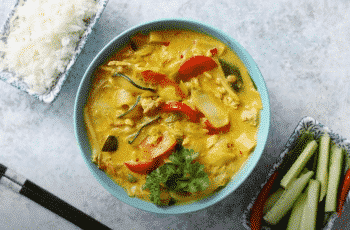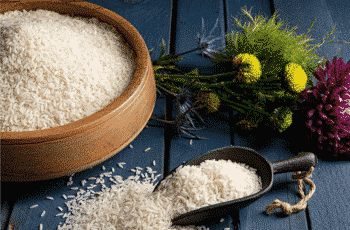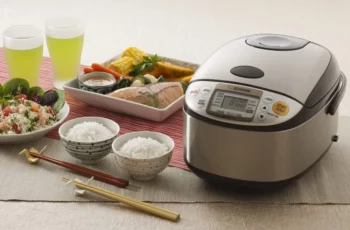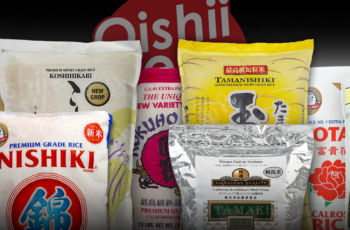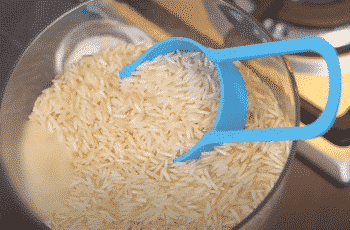Table of contents
Basmati rice is a long-grain rice variety that has been cultivated for centuries in the Indian subcontinent. It is known for its distinct aroma, nutty flavor, and delicate texture. In addition to its delicious taste and versatile use in many dishes, basmati rice is also packed with nutrients and offers a range of health benefits. From promoting heart health to aiding in digestion, the benefits of basmati rice are numerous and significant. In this article, we will explore the various basmati rice benefits and how incorporating it into your diet can improve your overall health and well-being.
Basmati is a long-grain, aromatic rice that has been enjoyed by people for centuries. But what makes basmati so special? Read on to find out why this is the best and learn about some of its amazing health benefits.
At first glance, basmati rice may seem no different from other types of rice. However, once you smell the seeds, you will notice a big difference. Here are some of the benefits of basmati t has a lower glycemic index than other types of, is a rich source of fiber, and has an appealing flavor that many people enjoy. also contains many vitamins and minerals that are beneficial for your health.
Basmati rice is fragrant, long grain. This is the most popular in India and Pakistan. Light texture, fluffy cotton. It is the best choice for your health due to its nutritional benefits, they provide a good source of thiamin, niacin. Basmati rice is a good choice for people with diabetes because it has only low blood sugar.
Basmati rice is a popular type of in Indian and Pakistani cuisine. Nutritionally, basmati is a good source of thiamin, niacin, and vitamin B6. Additionally, is a low GI food, which means it has a relatively low glycemic index. This makes a healthy choice for those looking to control their blood sugar. also contains some fiber and antioxidants that further promote its health benefits. If you are looking for a delicious and nutritious cereal to add to your diet, be sure to choose basmati rice!

basmati rice benefits
The history and things you need to know about basmati rice
The fragrant, delicious dish we call “basmati” is derived from an ancient plant that thrived in India for thousands of years before being cultivated elsewhere. This plant was first discovered near Udaipur around 2000 BC when its seeds became popular in other cultures after being spread by traders traveling between the great powers of Europe. Asia during this period such as Persia (now Iran) or Greece; suggested that it had special properties compared to other races then available on the Mediterranean coasts at least in part due to its proximity.
In ancient India, people cultivated rice for thousands of years in the foothills of what we call the “Himalayas”. The most common type today is called ‘basmati’. This strain dates back to 2000 BC and comes from a variety found near Udaipur, where India accounts for two-thirds of the global supply; However, its true origin is still unclear.
What’s so special about basmati rice?
The first thing you will notice about basmati rice is how distinctive its smell is. Many people say they can almost taste popcorn when eating the cooked kernels, which has led some cultures in India to call this type of cooking “the word queen of aroma.”
The special aroma of basmati rice will make your mouth salivate as soon as it touches your nose. The word “basmati” means full fragrance in Hindi and this variety is known for its rich aroma that many people find appealing,
Basmati rice comes in two varieties, white and brown, Both of them have a nutty flavor and characteristic smell. But it is the process of making this dish that makes it special.
basmati White – grown for a longer time and more thoroughly treated than brown – offers a delicious all-natural flavor with no added trace elements like pesticides or herbicides during production.
brown basmati,– only the skins have been removed, so they have more fiber and nutrients because the outer layers are left intact, while in the White version, Both types make for an aromatic addition Delicious and healthy for your diet.
The health benefits of brown rice and basmati white are unmatched. The two have a long history together, with one having more nutrition than the other depending on your dietary needs – Brown rice provides fiber while keeping the weight light; Or if you’re looking to increase your iron intake, choose jasmine/white varieties that contain three times more tenacious metal atoms per serving (1 cup) than 2 cups of the cooking ingredient.
Health benefits
Both brown rice and basmati white rice offer many health benefits, including:
Fiber- Brown and white rice can be excellent sources of fiber, which aids digestion. Eating more fiber can help reduce your risk of developing Type 2 diabetes. Eating less fiber can lead to digestive problems like constipation. Complex carbohydrates in the two offer different benefits. versus just one – they work together to keep your blood sugar balanced!
Fiber is the enemy of constipation, but it’s good for you too! There are two types of fiber in basmati rice: soluble and insoluble. The latter will add bulk to your stool so the waste can move faster while passing through our digestive tract.
Diabetes. To maintain a healthy lifestyle, it is important to ensure that your diet includes foods with a low glycemic index. Basmati can be part of this list as it has an average score of 50 to 58 on the scale which means they are not too high or low compared to other varieties you may find at home like Wheat pasta dishes! This will help regulate blood sugar better than eating something like long white beans. This may help regulate blood sugar in Type 2 diabetics,
Better for Heart Health.- Whole grains like basmati brown rice are a great way to maintain heart health. Eating them can also help you achieve a more youthful appearance, thanks in part to their ability to lower blood pressure levels and fight high cholesterol, leading us towards better overall fitness!
The right diet for you is a diet rich in whole grains and vegetables. A study conducted by Harvard University found that eating these foods can reduce the risk of heart disease, as well as improve blood cholesterol levels, which helps protect against hypertension (high blood pressure). a risk factor for heart disease
Better brain health- as Basmati rice is high in B vitamins, including thiamine. It has 22% of your daily recommended amount per serving! Thiamine helps maintain brain health and a deficiency can lead to Wernicke encephalopathy – so enjoy this delicious basmati recipe today for better cognitive function
The mental and physical benefits of basmati rice are some of the things underlying its delicate, mild flavor. High levels of B vitamins including thiamine may promote better brain health as well as prevent Wernicke Encephalopathy, a disease caused by a lack of this essential nutrient.
Reduces Cancer Risk.- Brown rice is a great way to reduce your risk of cancer, as it contains more fiber and is lower in carbs than white or converted varieties. 3 ounces a day can save you 17% less colorectal cancer!
There are many health benefits from eating basmati brown rice such as reducing the risk of cancer and providing more fiber than other types. If we all eat the recommended amount (about 22 to 34 grams), our diets will be enriched with these delicious dishes that taste great without compromising on nutrition!
Nutrients per serving
1 cup of cooked basmati rice contains:
- Calories: 210
- Protein: 5 grams
- Fat: 0.5 grams
- Carbohydrates: 46 grams
- Fiber: 0.7 grams
- Sugar: 0 grams.
and also contains many other important nutrients, including:
- Vitamin B1 (thiamine)
- Vitamin B6
- Copper
- Magnesium
- Folate
- Phosphorus
- Iron
- Zinc.
The table above shows the nutrients in one cup of cooked basmati rice. It provides more than just carbohydrates and fiber, it also contains several different vitamins like thiamin (vitamin B1), riboflavin, or niacinamide that help fuel the formation of your enamel! Basmati brown is also lower on the glycemic index. However, white basmati rice is easier to digest.
Conclusion
Basmati Rice is a delicious and healthy addition to any meal. Whether you choose white or brown rice, provides important nutrients needed for good health. Buying organic, whole grain basmati is a great way to improve heart health, and brain health, and reduce cancer risk. If you’re looking for a nutritious side dish to add to your next meal, try basmati rice.
Table could not be displayed.Visit our homepage to see more: BIRCH WOOD KITCHEN
Exploring the Health Benefits of Basmati Rice: Why You Should Add it to Your Diet
Basmati rice is a long-grain rice that is commonly used in Indian and Middle Eastern cuisine. While it is known for its distinct aroma and flavor, it also offers a range of health benefits. From aiding digestion to promoting heart health, basmati rice is a nutritious addition to any diet. In this article, we’ll explore the various benefits of basmati rice and why you should consider adding it to your meals. Whether you’re looking to manage diabetes, lose weight, or simply improve your overall health, basmati rice could be a great choice for you.
I. Introduction
Basmati rice is a type of long-grain rice that is known for its distinctive aroma and flavor. It originated in the Indian subcontinent and is now widely used in Middle Eastern and South Asian cuisine. Basmati rice is typically grown in the Himalayan foothills and is known for its high quality and superior taste. In recent years, it has gained popularity around the world due to its many health benefits.
II. Nutrition of Basmati Rice
Basmati rice is a good source of several key nutrients, including carbohydrates, protein, and fiber. One cup of cooked basmati rice (about 150g) contains the following nutrients:
- Calories: 210
- Carbohydrates: 45g
- Protein: 4.5g
- Fat: 0.5g
- Fiber: 1g
- Sodium: 0mg
Compared to other types of rice, basmati rice is relatively low in calories and fat. It also has a lower glycemic index (GI) than other types of rice, meaning it does not cause a rapid spike in blood sugar levels after eating. This makes it a good choice for people with diabetes or those looking to manage their weight.
In addition, basmati rice is a good source of complex carbohydrates, which provide a sustained source of energy. It also contains small amounts of vitamins and minerals such as niacin, thiamin, vitamin B6, and iron.
Overall, basmati rice is a nutritious and healthy addition to any diet. Its low calorie and low GI content, combined with its high fiber and protein content, make it a great choice for people looking to improve their health and wellbeing.
III. Health Benefits of Basmati Rice
Basmati rice offers a range of health benefits, thanks to its high nutrient content. Some of the key benefits include:
Aids Digestion: Basmati rice is a good source of dietary fiber, which helps promote healthy digestion. The fiber in basmati rice can also help prevent constipation and other digestive problems.
Lowers Blood Sugar: Basmati rice has a low glycemic index (GI), which means it does not cause a rapid spike in blood sugar levels. This makes it a good choice for people with diabetes or those looking to manage their blood sugar levels.
Promotes Weight Loss: Basmati rice is relatively low in calories and fat, making it a great choice for people looking to lose weight. The high fiber and protein content in basmati rice can also help keep you feeling full for longer, reducing the chances of overeating.
Promotes Heart Health: Basmati rice contains small amounts of potassium and magnesium, which are important for heart health. It also has a low sodium content, which can help reduce the risk of high blood pressure and other cardiovascular problems.
Contains Antioxidants: Basmati rice contains antioxidants such as phenolic compounds, which can help protect the body against cell damage and oxidative stress.
IV. Basmati Rice and Weight Loss
Basmati rice is a great food for people looking to lose weight. Here are some of the ways in which it can help:
Low in Calories: Basmati rice is relatively low in calories, with only 210 calories per cup of cooked rice (about 150g). This makes it a great choice for people looking to reduce their calorie intake.
High in Fiber: Basmati rice is a good source of dietary fiber, which helps keep you feeling full for longer. This can help reduce the chances of overeating and snacking on unhealthy foods.
Low Glycemic Index: Basmati rice has a low glycemic index (GI), which means it does not cause a rapid spike in blood sugar levels. This can help regulate insulin levels and prevent overeating.
Versatile: Basmati rice can be used in a variety of dishes, from stir-fries to curries. This makes it easy to include in your diet and can help you avoid unhealthy, high-calorie meals.
V. Basmati Rice and Diabetes
Basmati rice is a great food for people with diabetes. Here are some of the reasons why:
Low Glycemic Index: Basmati rice has a low glycemic index (GI), which means it does not cause a rapid spike in blood sugar levels. This can help regulate insulin levels and prevent blood sugar fluctuations.
High in Fiber: Basmati rice is a good source of dietary fiber, which helps promote healthy digestion and prevent constipation. This can also help regulate blood sugar levels.
Low in Fat: Basmati rice is relatively low in fat, with only 0.5g of fat per cup of cooked rice (about 150g). This makes it a great choice for people with diabetes, as high-fat foods can contribute to insulin resistance.
Recommended Serving Sizes: People with diabetes should aim to consume about 1/3 to 1/2 cup of cooked rice per meal. This will help regulate blood sugar levels and prevent overeating.
VI. Basmati rice benefits
Basmati rice is a heart-healthy food that can help reduce the risk of cardiovascular disease. Here are some reasons why:
- Low in Saturated Fat: Basmati rice is naturally low in saturated fat, which can help reduce the risk of heart disease.
- Contains Fiber: Basmati rice is a good source of dietary fiber, which has been shown to improve heart health by reducing cholesterol levels and promoting healthy digestion.
- Complex Carbohydrates: Basmati rice is a source of complex carbohydrates, which provide sustained energy and can help regulate blood sugar levels.
Incorporating basmati rice into a heart-healthy diet can be a great way to improve overall cardiovascular health.
VIII. Basmati Rice and Blood Pressure
High blood pressure is a common health problem that can increase the risk of heart disease and stroke. Basmati rice can be a great addition to a healthy diet for people looking to manage their blood pressure. Here are some reasons why:
- Low Sodium: Basmati rice has a low sodium content, with only 4mg of sodium per cup of cooked rice (about 150g). This can help reduce the risk of high blood pressure and other cardiovascular problems.
- Contains Potassium: Basmati rice contains small amounts of potassium, which is important for heart health and can help regulate blood pressure levels.
- Whole Grain Option: Choosing whole grain basmati rice over white rice can also help lower blood pressure. Whole grains contain more nutrients and fiber than refined grains, which can help improve overall cardiovascular health.
Incorporating basmati rice into a blood pressure-friendly diet can be a great way to promote heart health and reduce the risk of cardiovascular disease.
IX. Basmati Rice and Antioxidants
Basmati rice is a good source of antioxidants, which are compounds that protect the body against free radical damage and oxidative stress. Here are some reasons why basmati rice is a great source of antioxidants:
- Contains Phenolic Compounds: Basmati rice contains phenolic compounds, which have been shown to have antioxidant properties.
- Vitamin E: Basmati rice is also a good source of vitamin E, which is an important antioxidant that helps protect cells from damage.
Incorporating basmati rice into a diet rich in fruits, vegetables, and other antioxidant-rich foods can be a great way to boost overall antioxidant intake and promote optimal health.
X. Conclusion
Basmati rice is a nutritious and delicious food that offers a range of health benefits. From promoting heart health to reducing the risk of high blood pressure, basmati rice can be a great addition to a healthy diet. Incorporating basmati rice into your meals can be a great way to improve overall health and well-being. So why not try adding some basmati rice to your next meal and experience the benefits for yourself?


